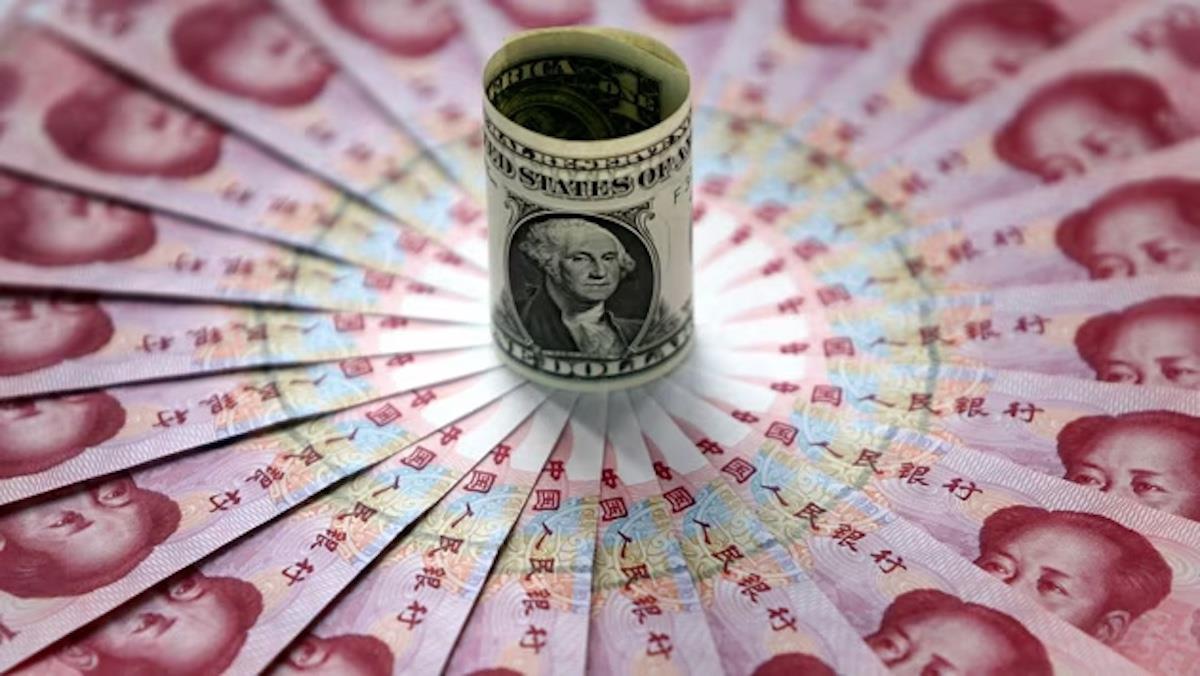
Injecting Edginess Into Singapore's Sterile Success
While the city-state has been universally lauded for its safety and predictability, its pristine streets and meticulous urban planning have concurrently cultivated a less glamorous reputation : one of being“boring”, where regulations constrain business innovation and daily life.
By contrast, rather than erasing its imperfections, Hong Kong has embraced them as defining features that make life there exhilarating. And as both metropolises invariably compete for financial flows and global talent, this“edginess” has grown into a decisive advantage, one which Singapore has much to learn from.
After-work drinks... of water?Hong Kong's bankers enjoy an enviable range of leisure options after work, from gorging on Michelin-star quality dim sum to downing cocktails in the boozy quarter of Lan Kwai Fong, all within a ten-minute walk of the Central finance district.
Singapore's offerings, which subsume a limited variety of hawker center meals and sanitized nightlife concentrated in the Clarke Quay precinct, pale in comparison.
Such disparities extend beyond cuisine and clubs; the curated, top-down nature of Singapore's mega-events can limit their public appeal, with five of the 15 art galleries at Gillman Barracks closing down just three years after opening.
Conversely, Hong Kong's Clockenflap concerts and Tai Hang Fire Dragon Festivals flourish through hands-on community participation, making them feel distinctly authentic.
Latest stories
Prolonged shutdown could push US economy over the edge

Yuan lies in wait as Trump pushes buck to the brink

Hindi, Greek and English all come from a single ancient language
Singapore's cultural sterility is not merely a minor inconvenience for restless youth but a considerable impediment to its economic development. Hong Kong has become the preferred filming location for many high-profile productions, including Pacific Rim and Blade Runner 2049, generating substantial tourism revenue in the process.
More significantly,“lifestyle and adventure” remains the second most important factor in expat relocation , and Singapore's work-obsessed image has driven a third of expats in top management to express it is“likely” they will return home within two years.
As such, Singapore should adopt three interlinked solutions to revitalize the city: financing cultural initiatives, liberalizing licensing, and reforming zoning. While Singapore's cultural restrictions are partly designed to maintain social order , Hong Kong exemplifies how this might coexist with greater vibrancy.
Alongside splurging on Formula 1 races and Taylor Swift concerts, Singapore could fund independent organizers of apolitical entertainment initiatives so that the most popular ones emerge organically, as demonstrated by Clockenflap's evolution from a humble grassroots gathering to a major attraction.
Hong Kong's fusion of Western and Chinese influences into its culture also offers a blueprint for Singapore to create a more diverse, textured identity. To this end, Singapore might foster Southeast Asian cultural districts and promote their food, music and art, a move which would complement its aspiration to serve as an ethnic“melting pot” and improve its relations with ASEAN neighbors.
Cutting red tapeEncouraging these events would also require reforming Singapore's Kafkaesque regulatory framework. Under the Public Entertainment License regime, organizers may wait weeks, or even months, for approval of something as trivial as live music in a cafe.
Hong Kong offers a more pragmatic model by combining general venue licensing with after-the-fact enforcement, where the prospect of reactive police intervention would sufficiently deter breaches of content restrictions .
Singapore's micro-businesses endure a similarly Byzantine labyrinth of compliance, with such burdens causing a staggering 78% to report losing contracts. A single registration typically demands two hundred separate data fields, coupled with onerous upfront checks on a smorgasbord of obligations.
The city-state could instead imitate the“provisional license' system, which slashes average set-up durations to two days by enabling businesses to begin trading upon satisfying basic requirements.
It might also scale regulations to firm size while implementing a more efficient licensing format akin to Hong Kong's Professional Certification System, whereby accredited professionals, instead of government officials, approve discrete compliance areas such as fire safety and waste management.
Although these measures may induce fears of quality erosion, regulators could reinforce accountability by conducting randomized inspections and mandating QR-code feedback channels at stalls for customers to flag any lapses.
When 'edginess' is effectivenessFinally, Singapore could consider embedding these cultural enhancements near its work areas.

Sign up for one of our free newsletters
-
The Daily Report
Start your day right with Asia Times' top stories
AT Weekly Report
A weekly roundup of Asia Times' most-read stories
The Lion City has consistently adopted a rigid zoning regime which creates strict residential, commercial and leisure districts, rendering business hubs such as into ghost towns after office hours and disconnecting the average Singaporean from the lively atmosphere its entertainment zones provide.
Fortunately, any amendments would not be without precedent; Singapore's Urban Redevelopment Authority has already begun reimagining districts such as Punggol as mixed-use precincts. It might therefore apply this strategy more broadly to mirror Hong Kong's Tsim Sha Tsui and Wan Chai, where offices are seamlessly blended with rooftop bars and shopping malls.
“Edginess” is the last quality one would associate with Singapore, and weaving it into the city's fabric would require both creativity and political resolve. Yet the vast potential rewards, not least the enhancements to citizens' quality of life and economic competitiveness, make this unconventional approach well worth pursuing.
Sean Tan is a former King's Scholar at Eton College and intern at the Center for International Governance Innovation. He has also written articles for St Antony's International Review Oxford, Yale's undergraduate US-China magazine 'China Hands', Oxford Political Review and several other notable publications.
Sign up here to comment on Asia Times stories Or Sign in to an existing accoun
Thank you for registering!
An account was already registered with this email. Please check your inbox for an authentication link.
-
Click to share on X (Opens in new window)
X
Click to share on LinkedIn (Opens in new window)
LinkedIn
Click to share on Facebook (Opens in new window)
Facebook
Click to share on WhatsApp (Opens in new window)
WhatsApp
Click to share on Reddit (Opens in new window)
Reddit
Click to email a link to a friend (Opens in new window)
Email
Click to print (Opens in new window)
Print

Legal Disclaimer:
MENAFN provides the
information “as is” without warranty of any kind. We do not accept
any responsibility or liability for the accuracy, content, images,
videos, licenses, completeness, legality, or reliability of the information
contained in this article. If you have any complaints or copyright
issues related to this article, kindly contact the provider above.


















Comments
No comment